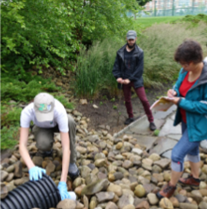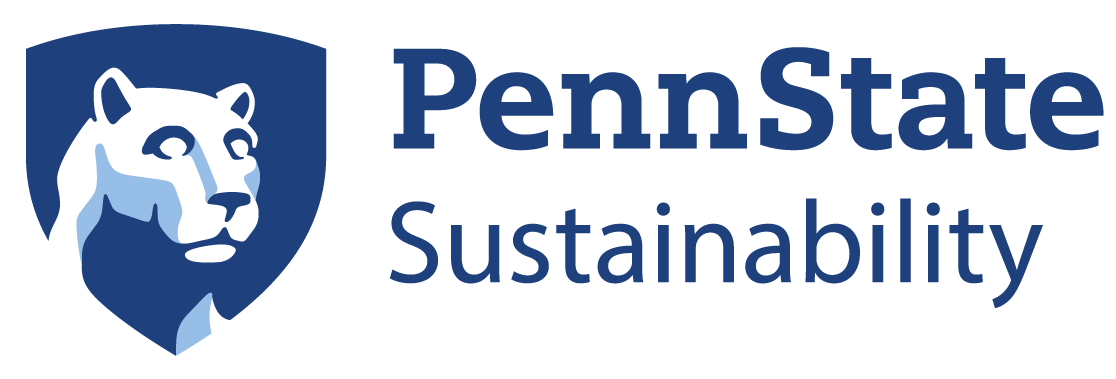Living Labs at Penn State
Our goal is to institutionalize the use of Penn State campuses for Living Labs projects in order to provide transformative learning experiences. By using and improving Penn State operations, Living Lab projects can directly enhance the University’s academic, research and service activities.
Successful projects build upon existing initiatives and engage students, staff, and faculty in a multidisciplinary coalition to address sustainability challenges on Penn State campuses. Projects can include objectives of student learning, an operational outcome, and advance research initiatives and result in a report, recommendations for changes, a design, or implemented projects.
A living laboratory is an ecosystem for learning that enables the unique features of our communities, facilities, campus grounds, and regional neighborhoods to serve as test beds for the development of innovative solutions to real challenges. Through project-based teaching, research, and applied work, we combine our talents across the functions of the university and within our community to explore, experiment, and evaluate actionable solutions.
Using campus as a Living Lab provides opportunities to merge academic resources (students, projects, classwork, internship, research, etc.) with campus operations and facilities management. This relationship provides students and faculty with real-world experience and, for Penn State operations, a path to meet sustainability goals.
LIVING LABS:
Provide mutually beneficial outcomes for all stakeholders:
- For students and faculty, they offer a safe space to learn and develop real-world skills that they can use in future career opportunities or research.
- For Penn State Facilities, Living Labs can be utilized to accomplish dormant projects that need extra support, or act an alternative to projects that would require expensive consultation.
- Collectively, Living Labs support Penn State’s co-curricular goals and help to further the implementation of the university-wide strategic plan.
Offer experiential learning that leads to growth in one or more of five core competency areas: multicultural awareness, systems thinking, ethical reasoning, civic responsibility, professional development.
Are internal experiments that make social and/or material alterations and incorporate an explicit element of iterative learning.
Use and improve Penn State operations while directly enhancing the University’s academic, research and service activities.
Offer flexible pathways for students and faculty to engage in sustainability learning.
Increase key competencies, especially interpersonal (effective & compassionate communication, collaborative teamwork, impactful stakeholder engagement, continuous learning, etc.).
Help operations turn sustainability challenges into opportunities that are reflected in reduced operating costs, broader support from the campus community, and lower environmental impacts.
Enable faculty to utilize high impact practices in their classes to explore topics and conduct research
Allow students develop and acquire university learning outcomes such as:
- Knowledge Acquisition/Application: Develop an understanding of knowledge from a range of disciplines/areas
- Cognitive Competency: Acquire learning skills to assist in their academic success; Develop critical and reflective thinking abilities; and, Apply effective reasoning skills
- Life Skills and Self-Knowledge: Living Labs help students determine their career interests, Develop the ability to manage and resolve interpersonal conflicts, and Cultivate a propensity for lifelong learning
- Personal Integrity and Values: Acquire ethical reasoning skills
- Intercultural Development: Develop sensitivity to and appreciation of human differences; Exhibit the ability to work effectively with those different from themselves; and, Demonstrate a commitment to social justice
- Leadership and Active Citizenship: Communicate effectively with others both verbally and in writing; Demonstrate an understanding of group dynamics and effective teamwork; Develop a range of leadership skills and abilities such as effectively leading change, resolving conflict, and motivating others; Develop a deep understanding of sustainability (locally, nationally, globally) and be prepared to lead others in the implementation of strategies for sustainable resource use on campus and in their communities; and, Assume a sense of civic responsibility and a commitment to public life.
Learn more about Living Labs:
If you or your class are interested in one of these topics, or if you want to learn more about Living Labs, contact Penn State Sustainability for more information (sustainability@psu.edu)


